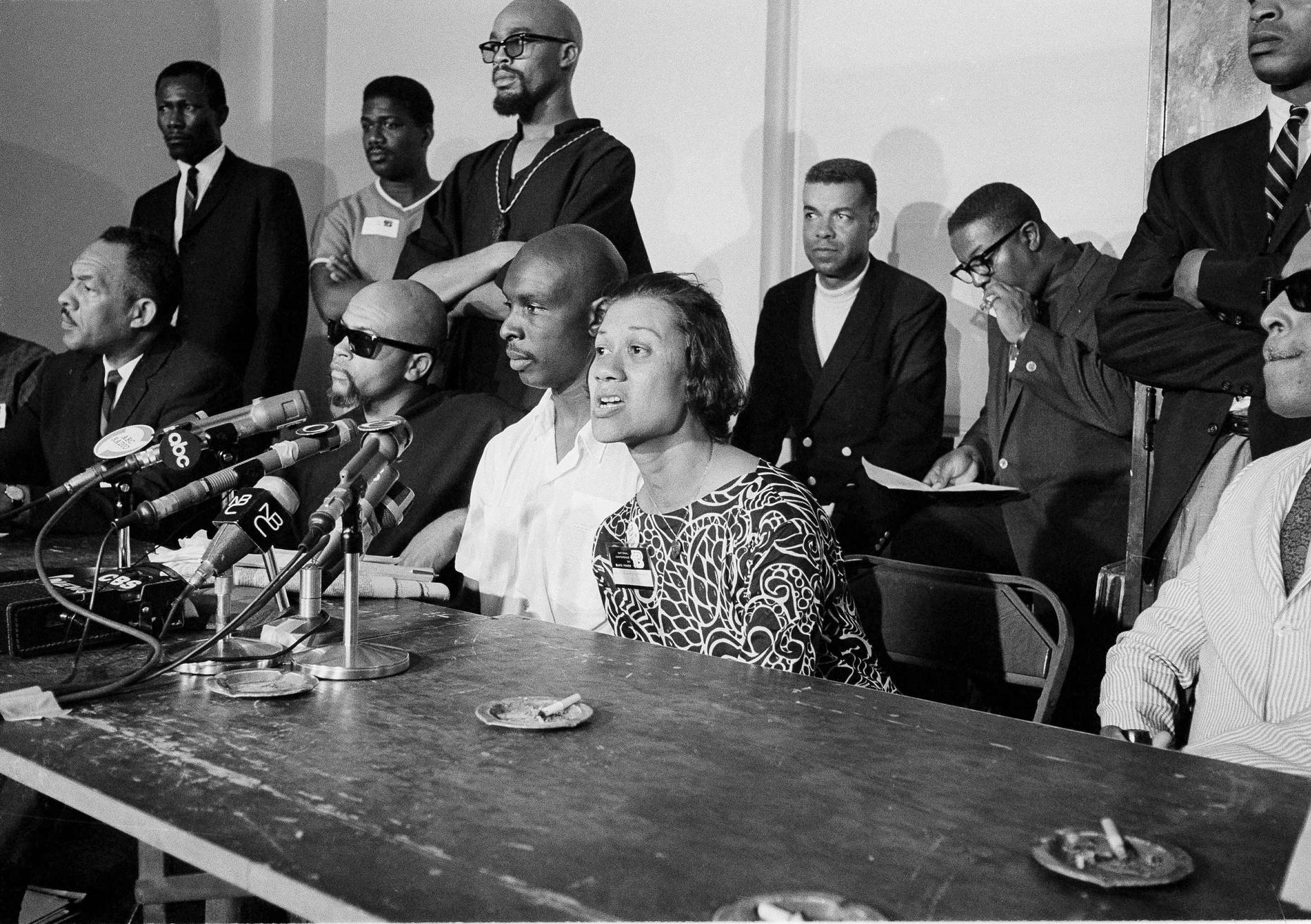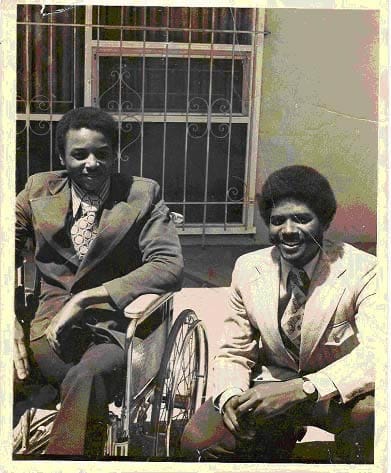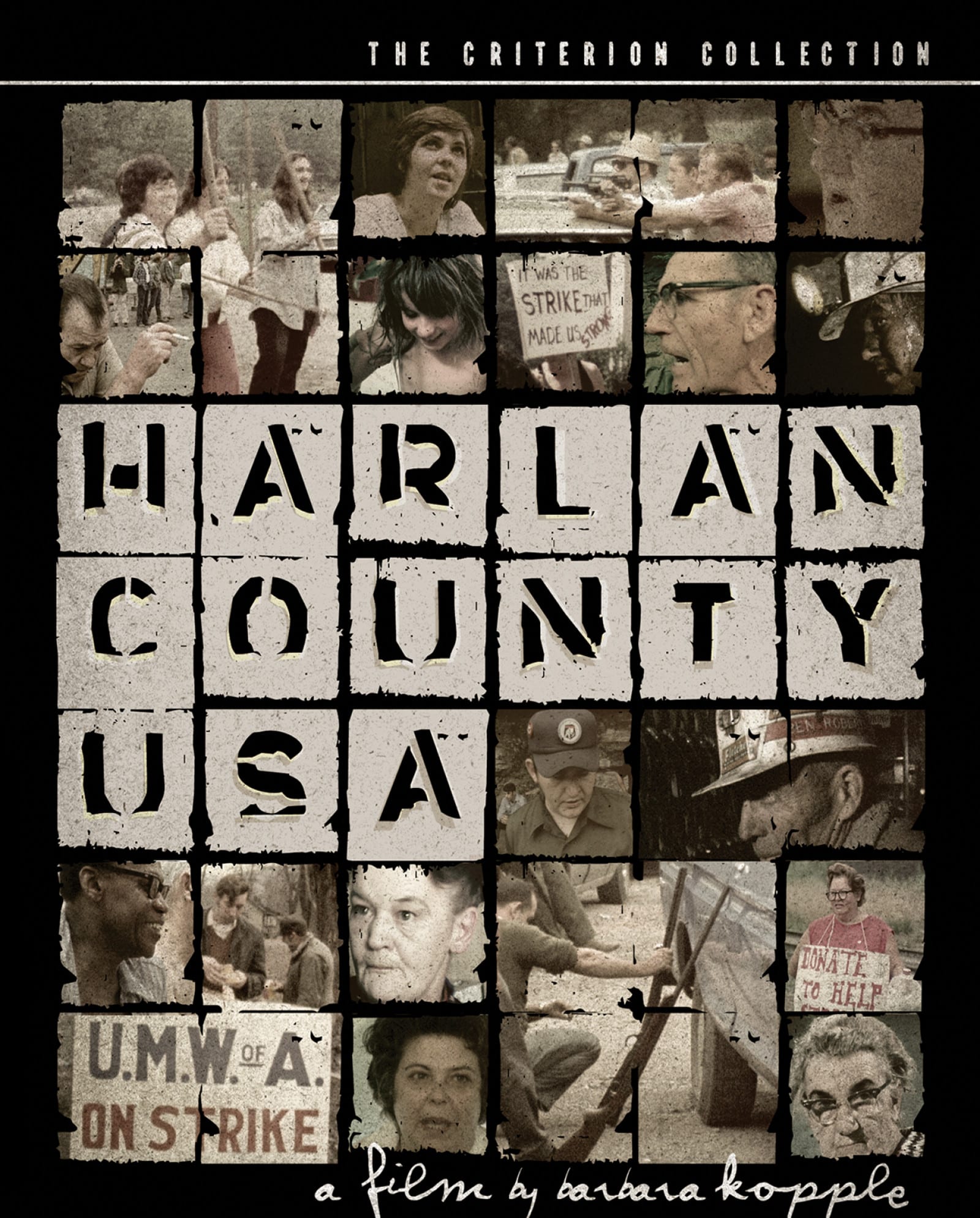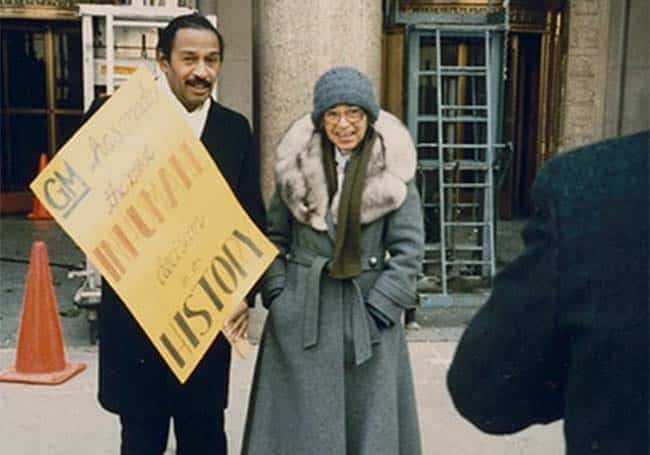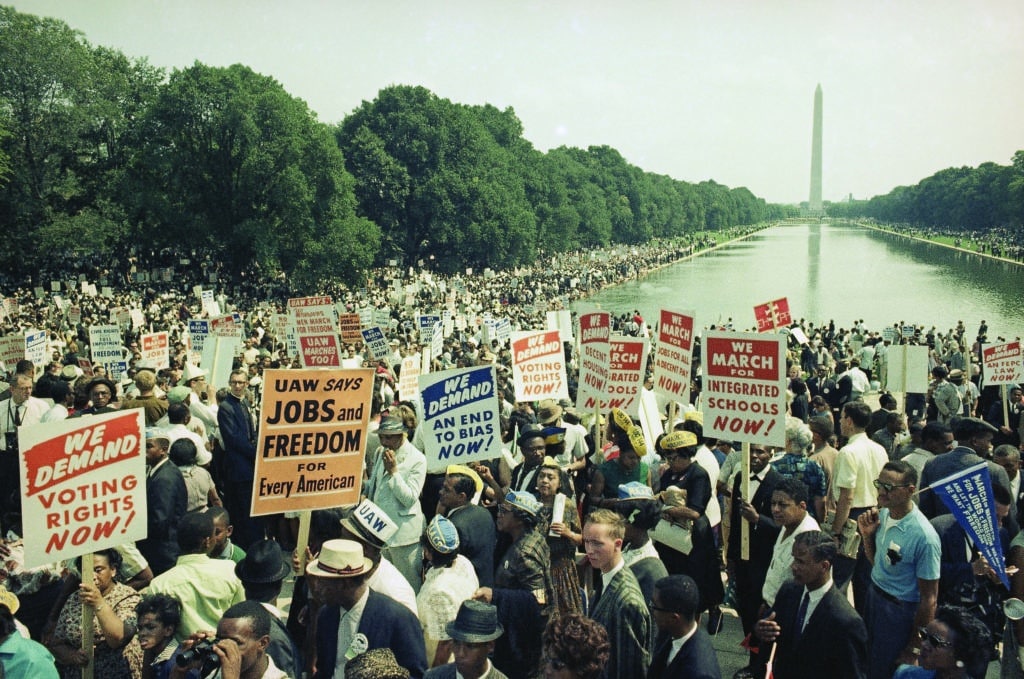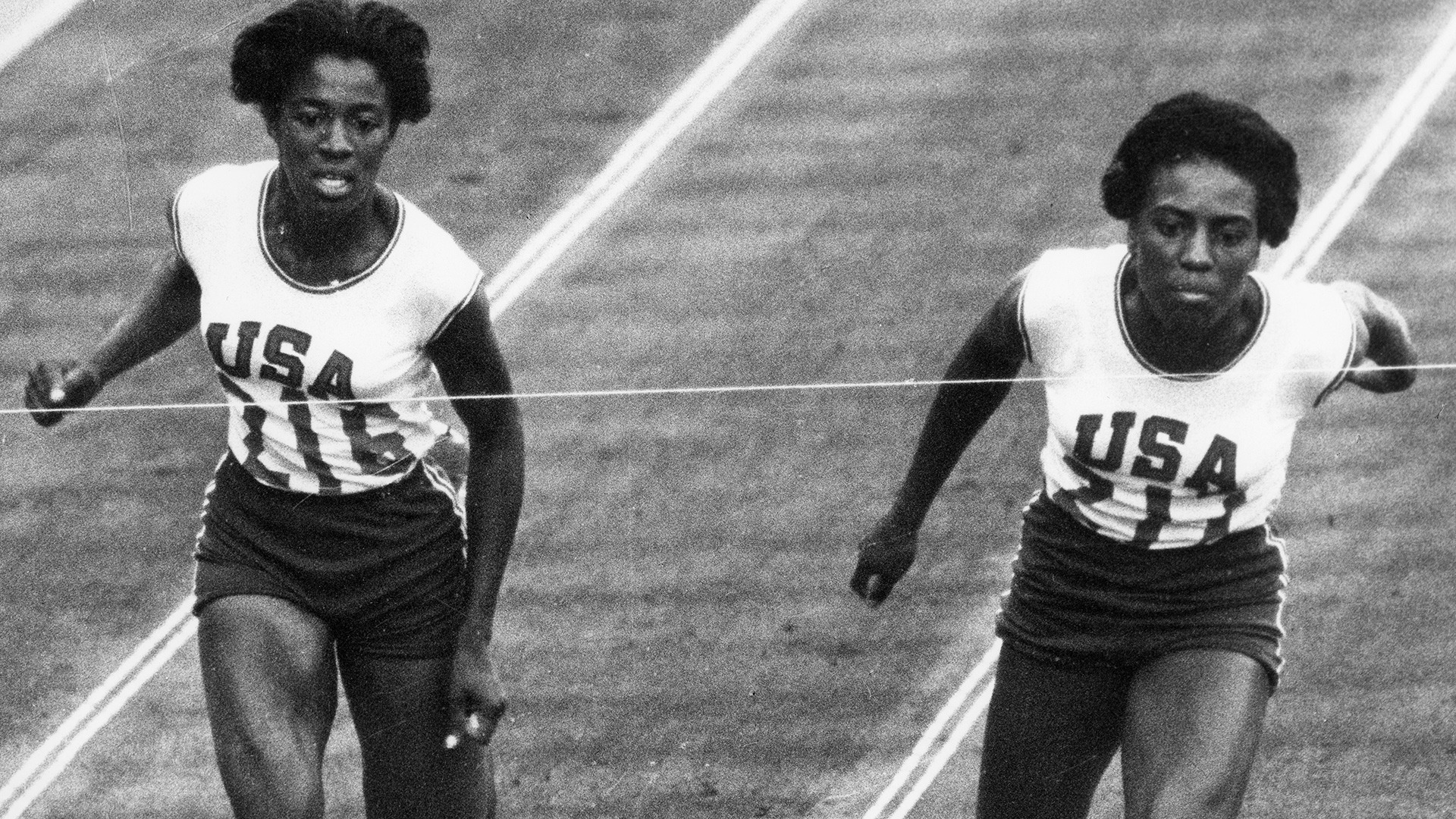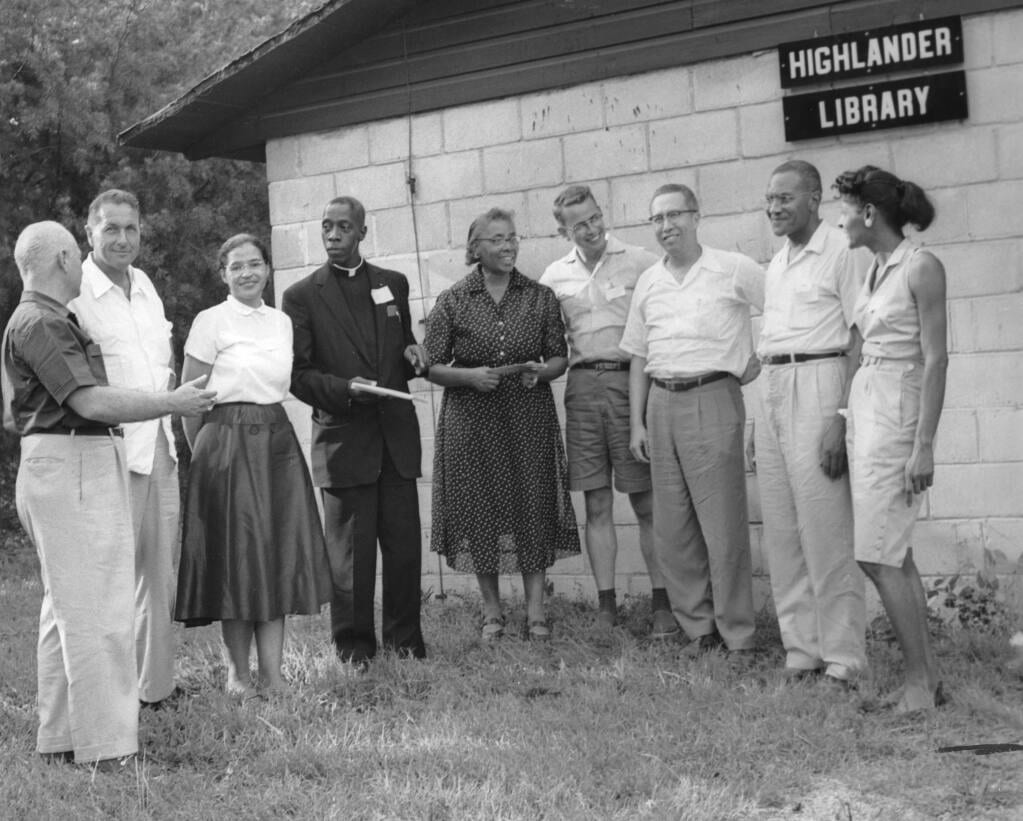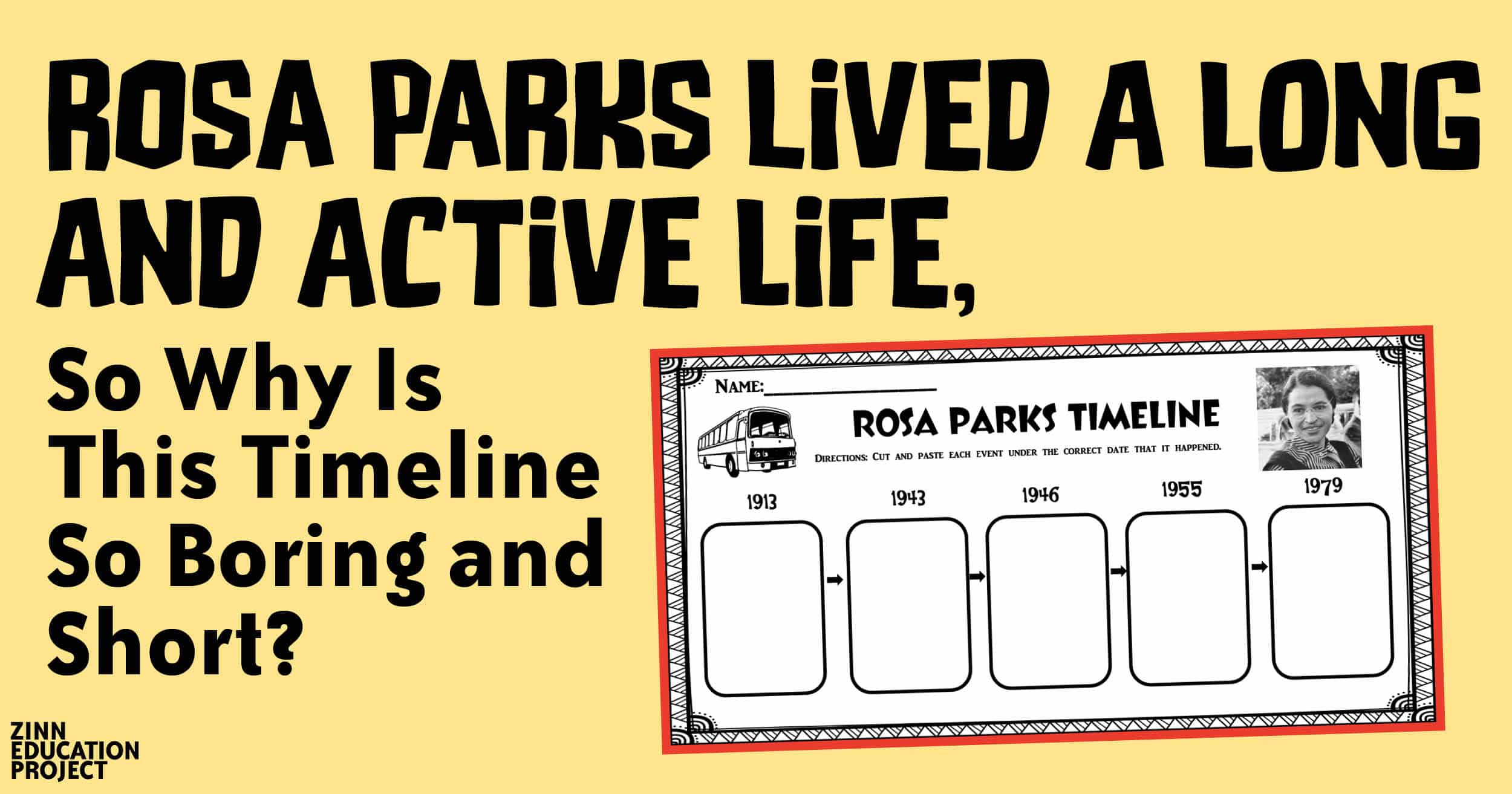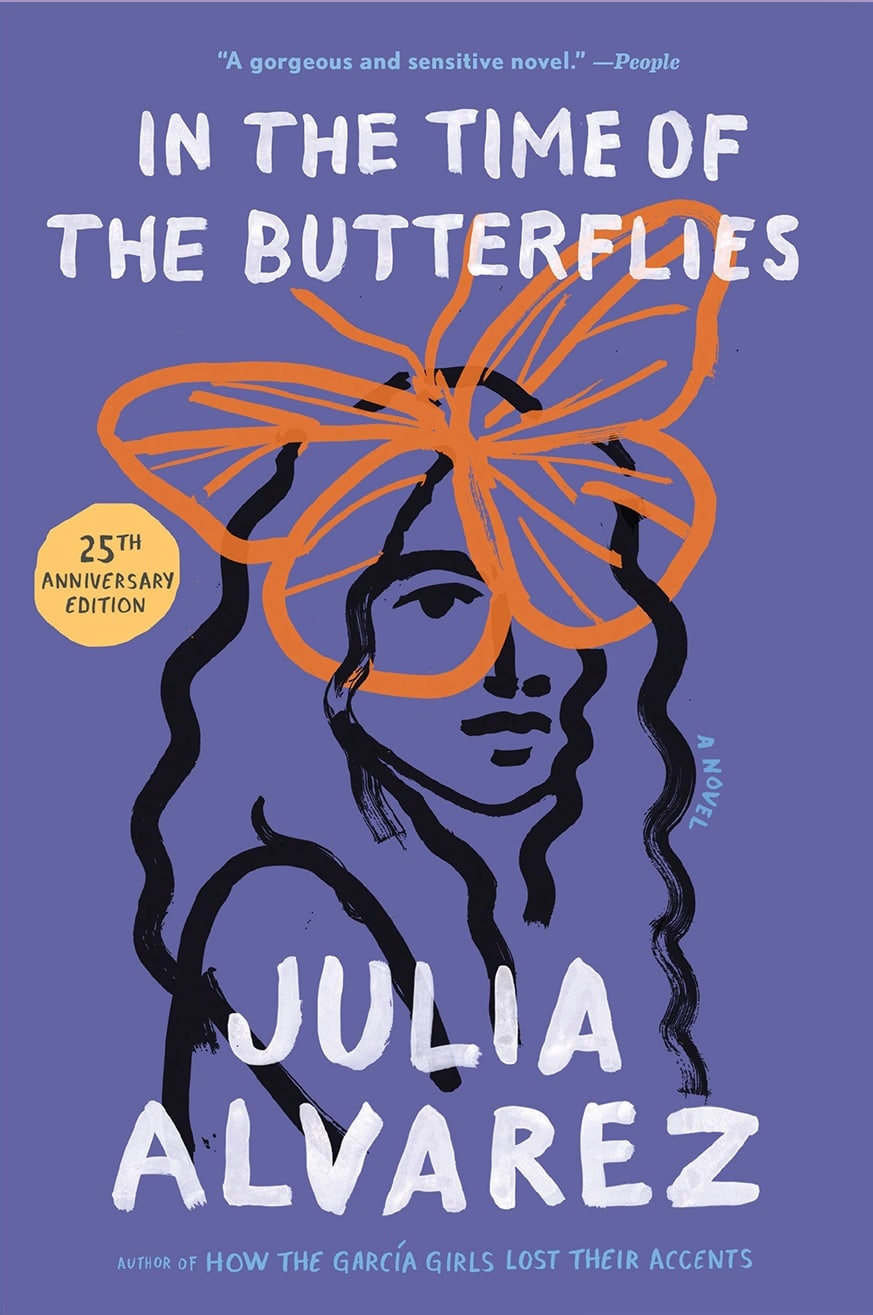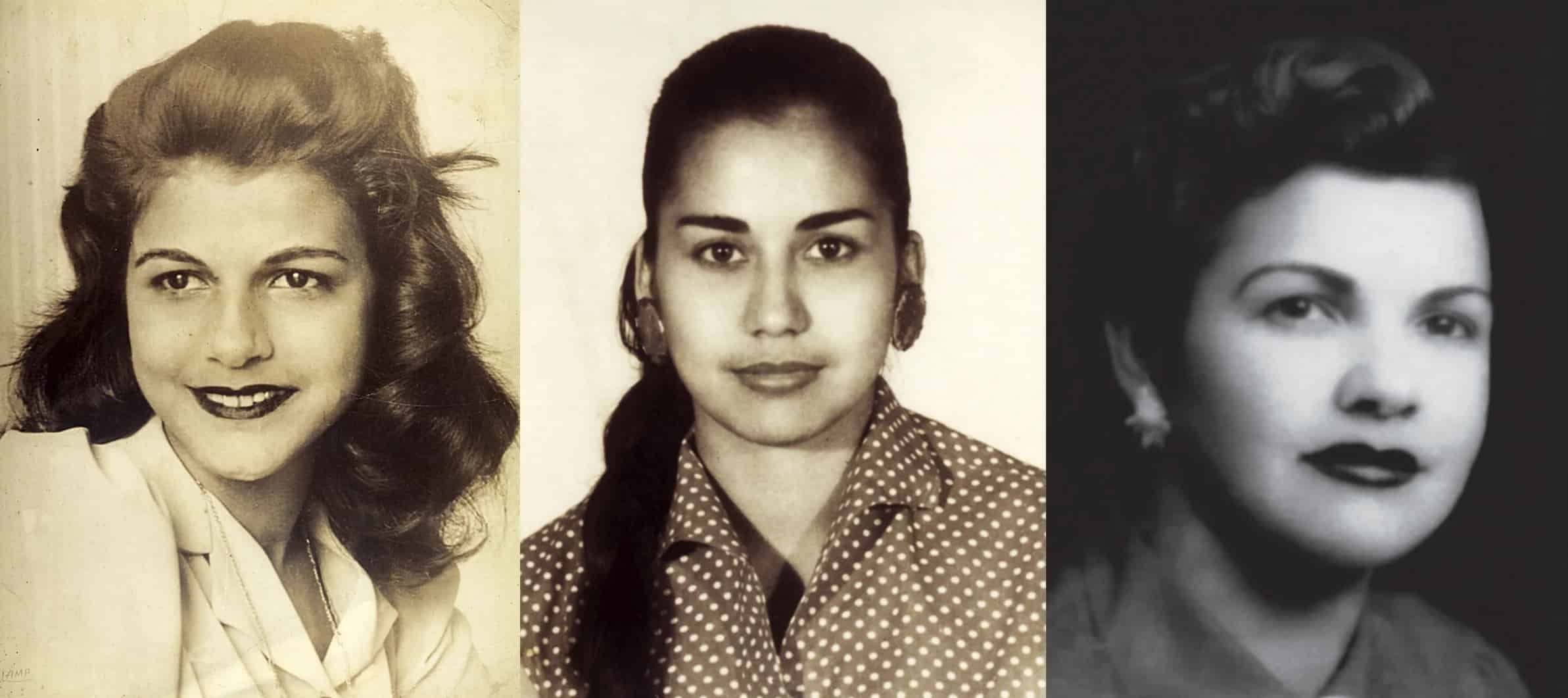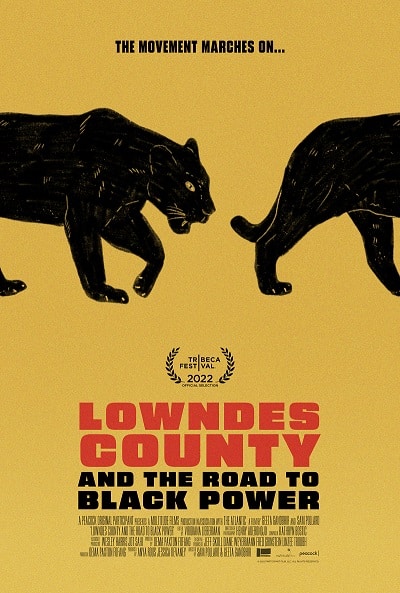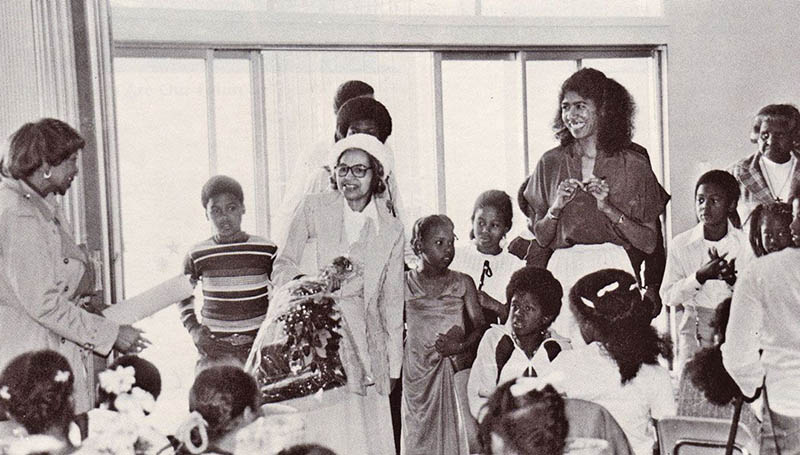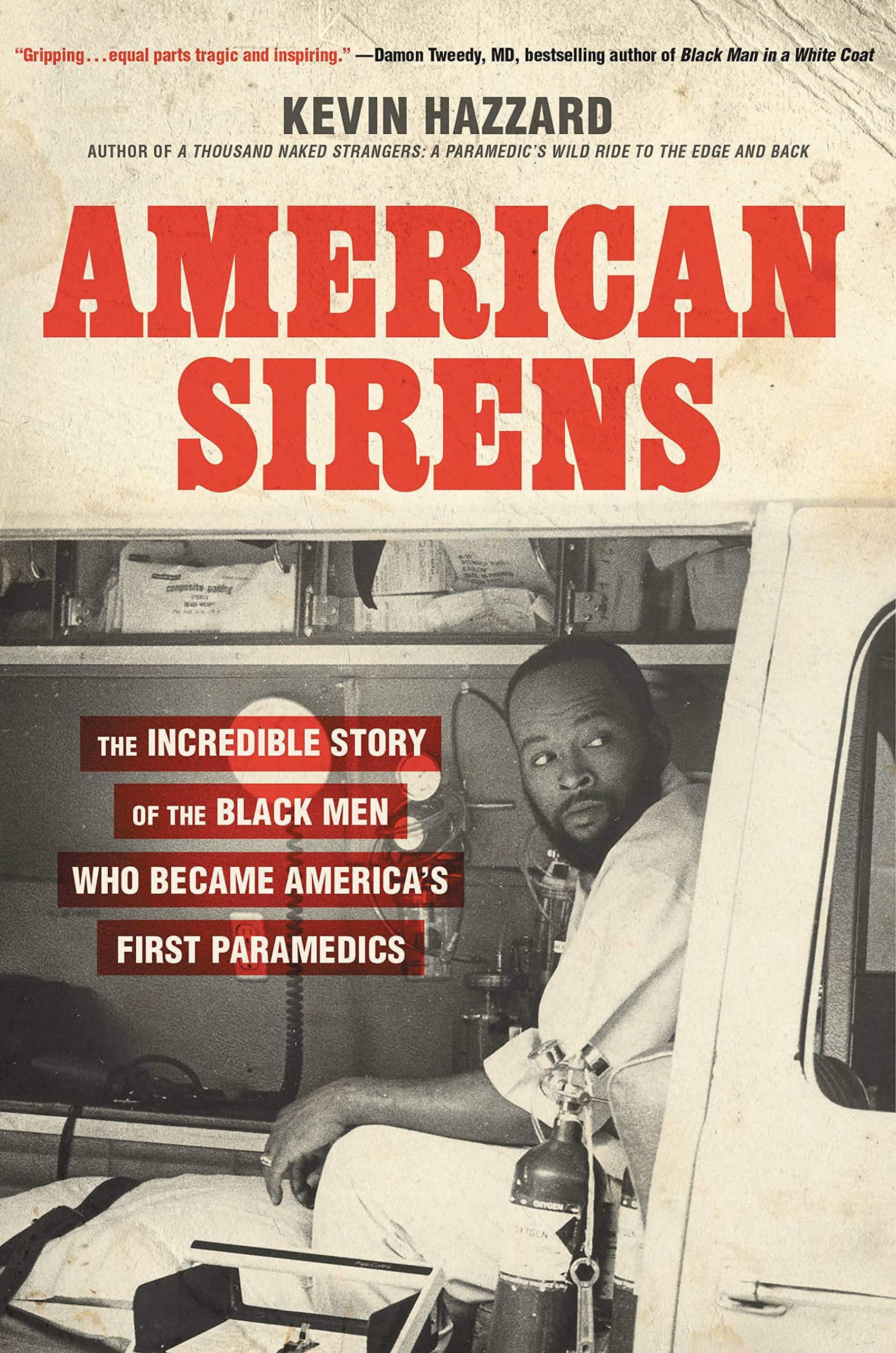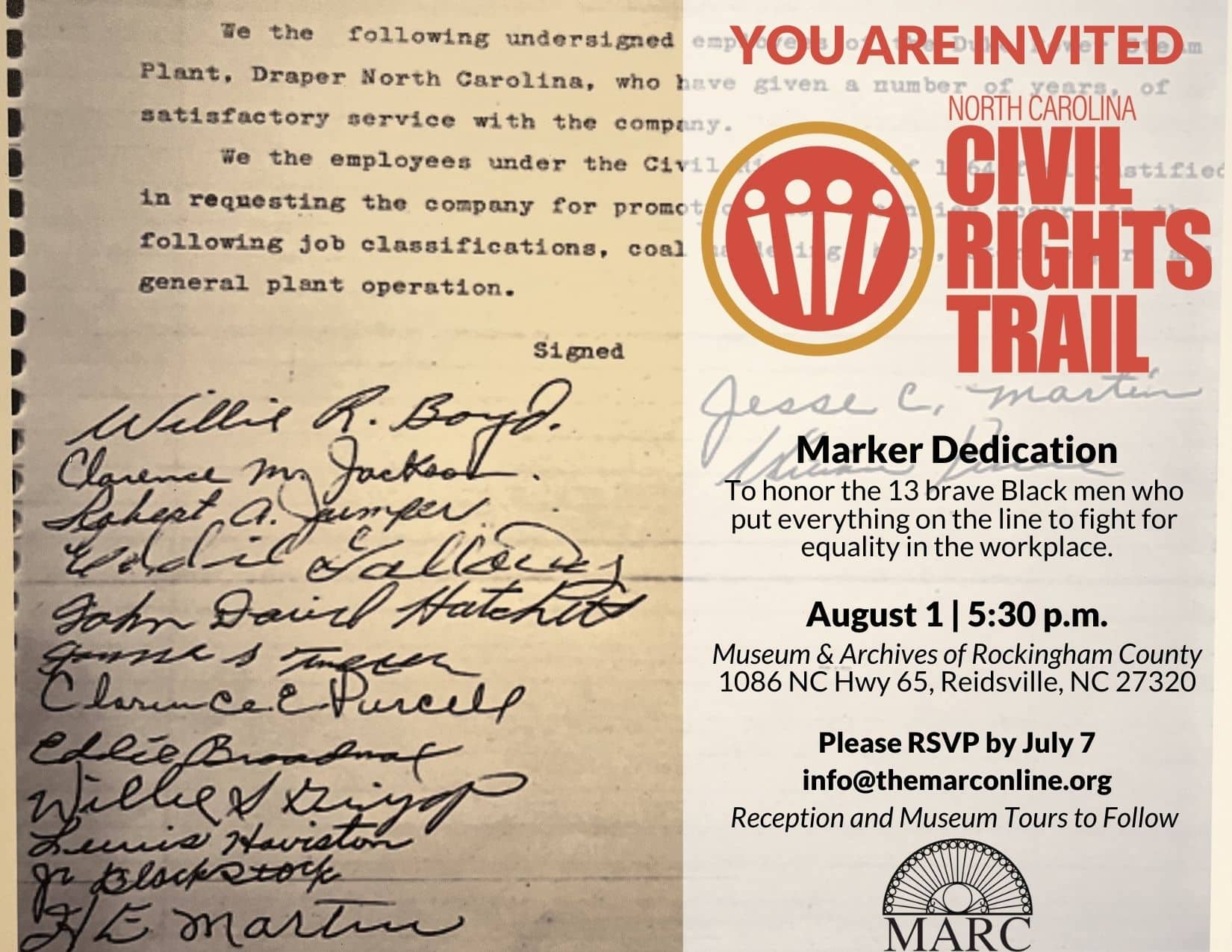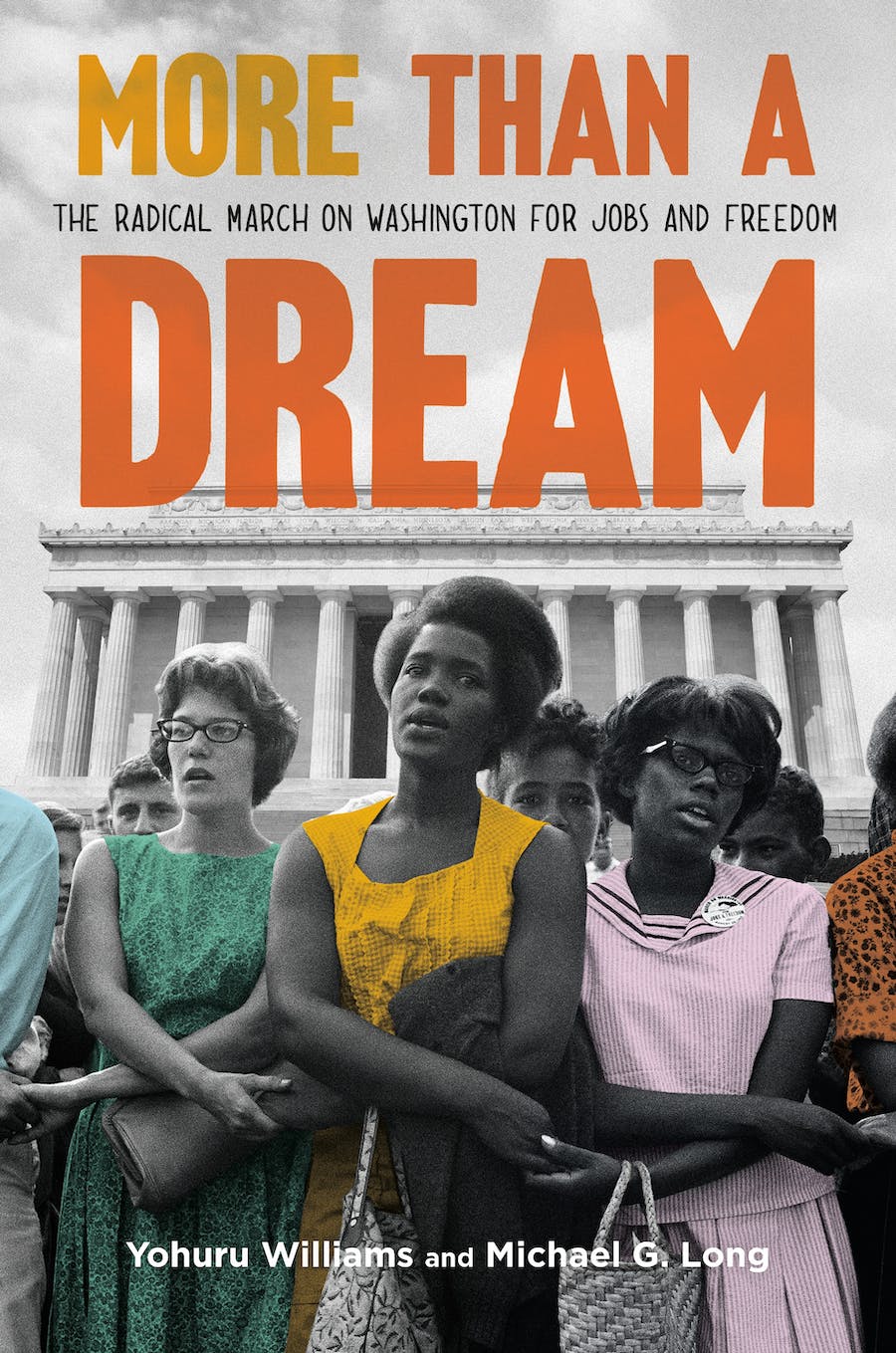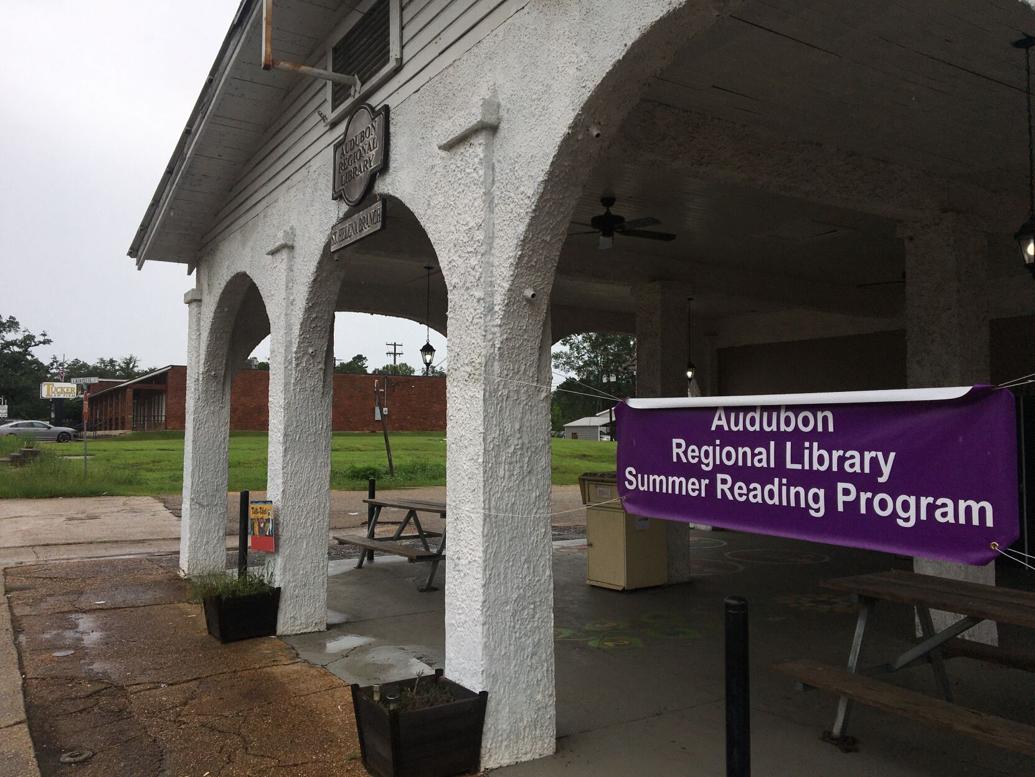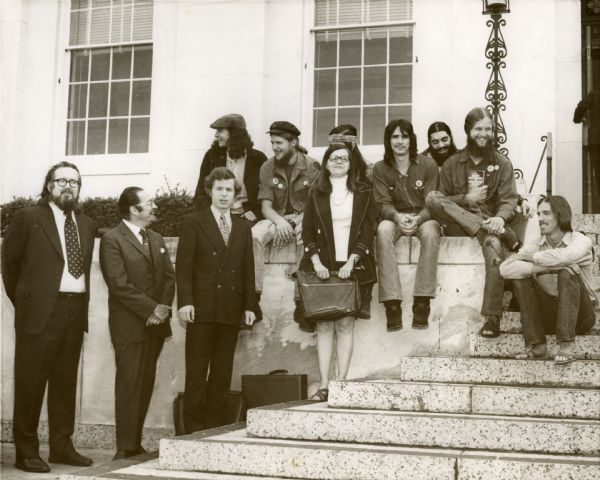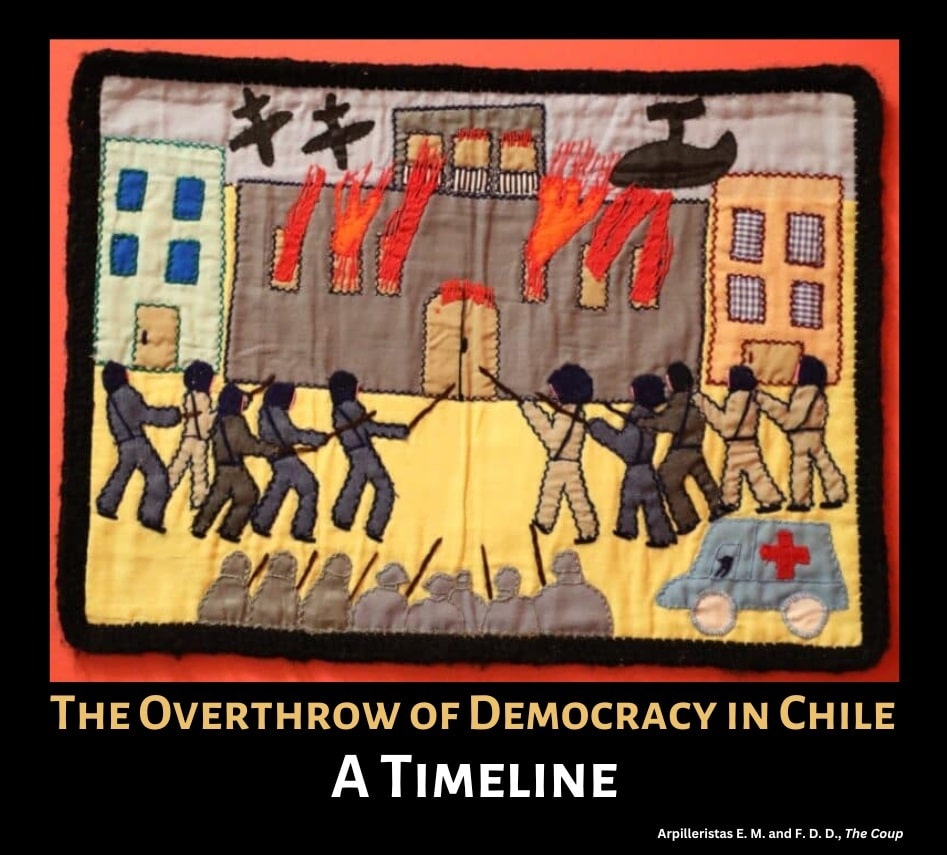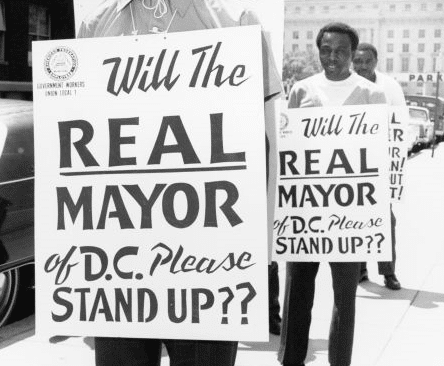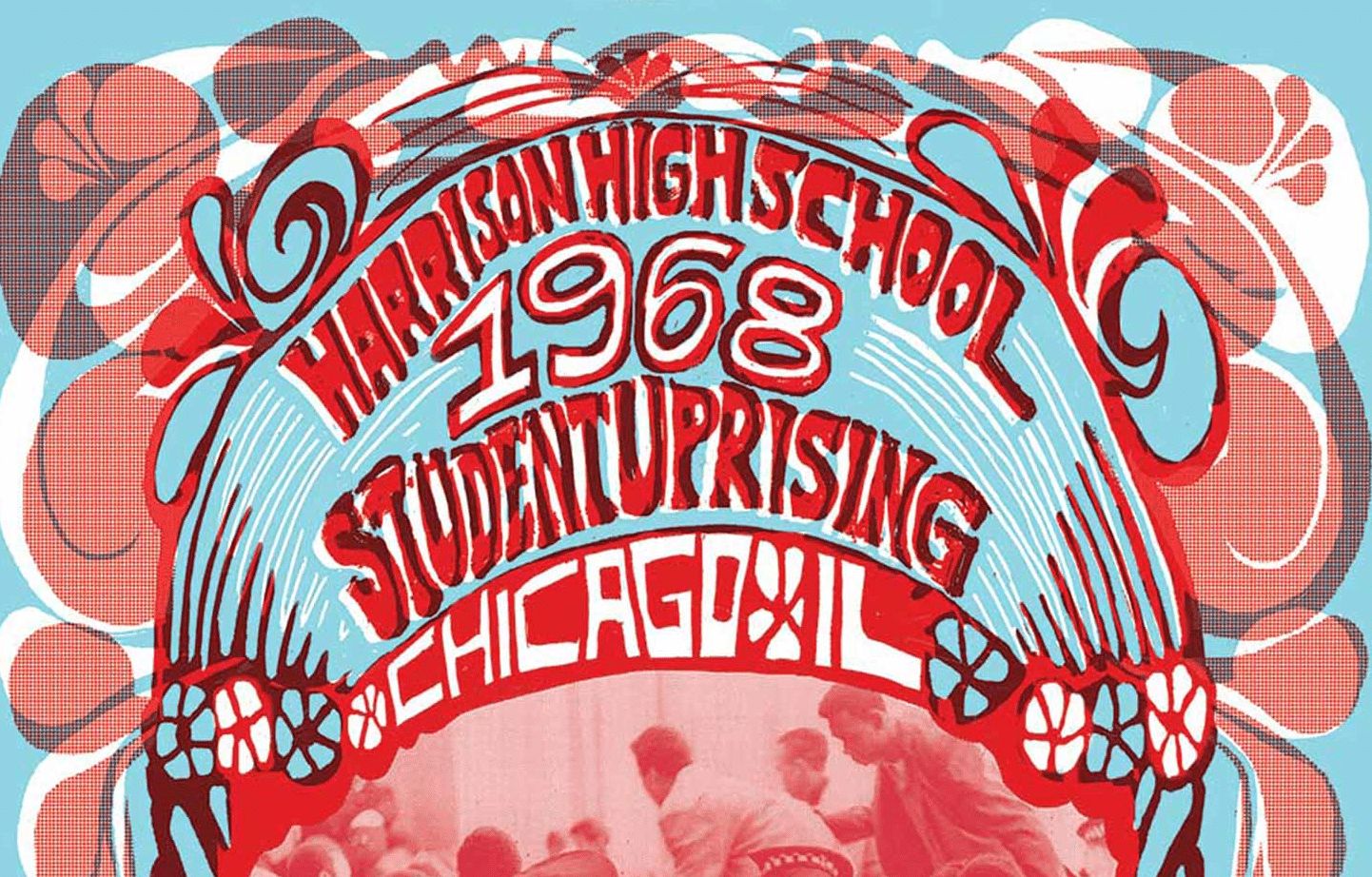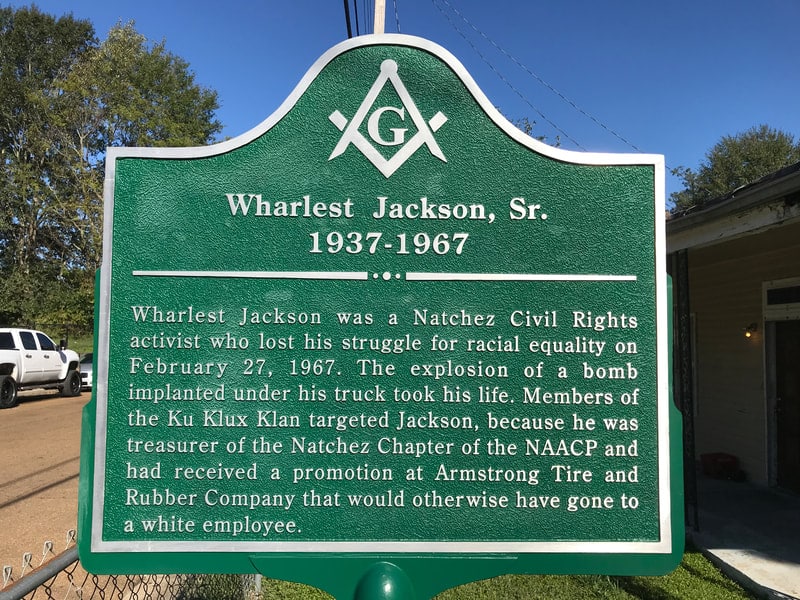More than 1,000 delegates representing 286 organizations and institutions from 126 cities in 26 states, Bermuda, and Nigeria gathered at the National Conference on Black Power in Newark, New Jersey.
Continue reading
Book — Non-fiction. Edited by Ben Wilkins. 2022. 216 pages.
A representative collection of Anne Braden's writings, speeches, and letters, from the relationship between race and capitalism, to the role of the South in U.S. society, to the function of anti-communism.
Continue reading
The first African Liberation Day drew some 60,000 demonstrators in cities across the United States and Canada, including one on the National Mall in Washington D. C.
Continue reading
Film. Directed and produced by Barbara Kopple. 1976. 103 minutes.
This documentary tells the story of a Kentucky coal miners' strike and the thirteen-month struggle between a community fighting to survive and a corporation dedicated to the bottom line.
Continue reading
Teaching Activity. By Say Burgin, Jeanne Theoharis, and Ursula Wolfe-Rocca.
Students learn to “talk back” to official accounts of the Detroit Uprising of 1967 by focusing on its root causes. They also get a fuller sense of Rosa Parks’s life and politics, and the Black freedom struggle outside of the South.
Continue reading
Teaching Activity. By Jessica Lovaas and Adam Sanchez. Rethinking Schools. 2021. Updated in 2023.
A lesson with case studies from Los Angeles; Birmingham, Alabama; Brooklyn; Detroit; Philadelphia, Pennsylvania; Albany, Georgia; and Cambridge, Maryland — to introduce students to the diverse struggles across the United States that were represented at the March on Washington.
Teaching Activity by Adam Sanchez
Continue reading
At the XIX Olympic Games in Mexico City in 1968, Wyomia Tyus became the first person to win gold medals in the 100-meter sprint in two consecutive Olympics. She was also participating in Olympic Project for Human Rights (OPHR) protest.
Continue reading
Teaching Activity. By Jesse Hagopian. 4 pages.
With a short video and readings with competing viewpoints, students will learn about master narratives and counter-narratives and how they apply to Rosa Parks’ life. This activity can be introduced before watching the film or reading the book, The Rebellious Life of Mrs. Rosa Parks.
Continue reading
Teaching Activity. By Ursula Wolfe-Rocca. 3 pages.
This timeline activity builds on students’ viewing of the 2022 film, The Rebellious Life of Mrs. Rosa Parks, and involves collaborating on a new timeline of Mrs. Parks' life.
Continue reading
Book — Fiction. By Julia Alvarez. 2010. 352 pages.
The story of Las Mariposas — “The Butterflies” — is about four sisters and their tragic deaths under Trujillo’s dictatorship in the Dominican Republic.
Continue reading
The murder of the Mirabal sisters — who clandestinely opposed the dictatorship of Rafael Trujillo in the Dominican Republic and were then brutally killed — has become an international symbol of resistance to violence against women.
Continue reading
Film. Directed by Sam Pollard and Geeta Gandbhir. 2022. 90 minutes.
The story of young SNCC organizers who fought for voting rights and Black power in Lowndes County, Alabama.
Teaching Activity by Directed by Sam Pollard & Geeta Gandbhir
Continue reading
Teaching Activity. By Tiffany Mitchell Patterson and Jessica Rucker.
In this lesson, students explore the core ideas of Black Power through a gallery walk with images and quotes connected to the life of Rosa Parks, and then consider how to define Rosa Parks’s activism.
Continue reading
Book — Non-fiction. By Kevin Hazzard. 2022. 336 pages.
The story of the Freedom House EMS in Pittsburgh, a group of Black men who became America's first paramedics and set the gold standard for emergency medicine around the world.
Continue reading
Book — Non-fiction. Edited by déqui kioni-sadiki and Matt Meyer. 2017. 648 pages.
The collective autobiography of the New York Panther 21, an infamous conspiracy case that highlighted government repression of Black liberation activists during the 1960s and 1970s.
Continue reading
In 1966, 14 Black employees filed a complaint with the EEOC claiming that they were discriminated against in hiring and promotion at a power plant in North Carolina. Five years later, the Supreme Court delivered its landmark unanimous ruling prohibiting discriminatory practices by employers.
Continue reading
Book — Non-fiction. By Yohuru Williams and Michael G. Long. 2023. 272 pages.
A look at the March on Washington through a wider lens, using Black newspaper reports as a primary resource, recognizing the overlooked work of socialist organizers and Black women protesters, and repositioning this momentous day as radical in its roots, methods, demands, and results.
Continue reading
Four Black teenagers tried to enter the whites-only St. Helena branch of the Audubon Regional Library in Greensburg, Louisiana. Instead, the library closed. Undeterred, the St. Helena Four continued to try to desegregate the local library and other segregated facilities.
Continue reading
Members of the Vietnam Veterans Against the War (VVAW) were arrested and erroneously charged with inciting violence at the 1972 Republican National Convention in Miami. They were all later acquitted after a lengthy and much publicized trial.
Continue reading
Article. Timeline by Bill Bigelow. 2023.
A timeline of the overthrow of democracy in Chile — the fall of Salvador Allende and the rise of Augusto Pinochet.
Continue reading
Amidst a looming “garbage crisis” in Washington, D.C., on May 1, 1970, 1,700 sanitation workers went on strike to demand an end to racial discrimination, unsafe working conditions, low pay, and unequal pick-up routes.
Continue reading
One third of the students at Harrison Technical High School staged a walkout to protest the lack of African American history classes, overcrowding and poor conditions, and more.
Continue reading
Wharlest Jackson (1930–1967), treasurer of the Natchez, Mississippi branch of the NAACP, was assassinated with a car bomb.
Continue reading
St. Louis Cardinals NFL linebacker Dave Meggyesy disobeyed league rules and refused to salute the flag during the pre-game playing of “The Star-Spangled Banner,” nearly fifty years before San Francisco 49ers quarterback Colin Kaepernick took a knee to protest police violence.
Continue reading
Film. Directed by Patrick Sammon and Bennett Singer. 2020. 82 min. and 35 min. versions
The award-winning PBS documentary Cured chronicles a pivotal moment in LGBTQ+ history: the early 1970s campaign to remove the diagnosis of homosexuality from the American Psychiatric Association’s manual of mental disorders.
Continue reading

